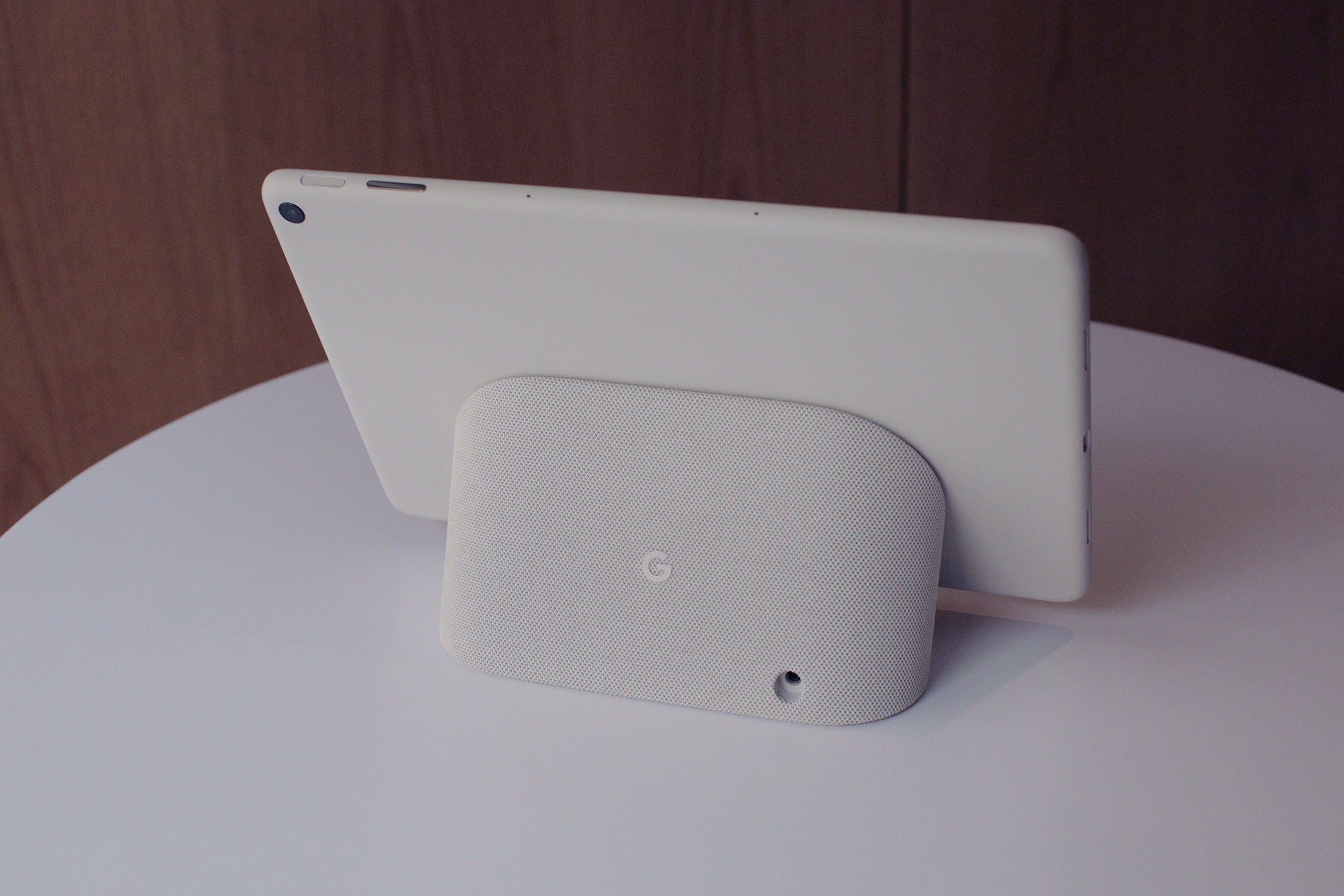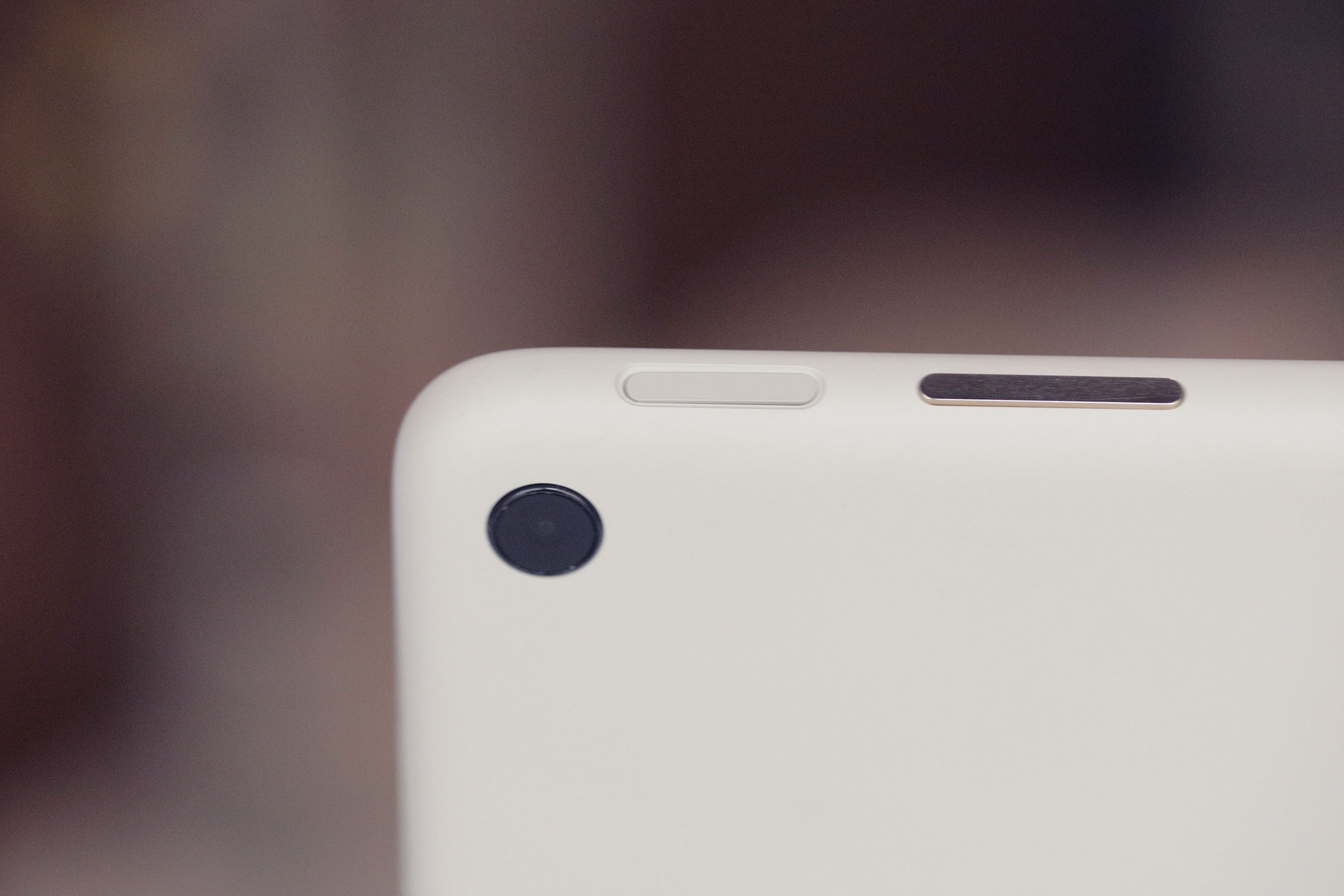We knew the Pixel Tablet was coming. In fact, we’ve known it for a year. Google teased the device at last year’s I/O. It was one of those “don’t worry, we’re working on stuff” sort of deals, with an extremely broad 2023 release date. The company offered a (slightly) better look at the system at its October event, offering a very quick preview of the dock.
Honestly, the dock is the most exciting piece here. The company didn’t love it when I referred to it as basically a giant Nest Home Hub, but I wasn’t the first and certainly won’t be the last to draw that extremely obvious comparison. It’s frankly hard to argue that Google didn’t bring this on itself with a design that borrows liberally from its smart home line.
Image Credits: Brian Heater
And why not? I’m convinced that the original Nest Hub remains the best looking smart screen to date. The Pixel Tablet effectively breaks it in two. There’s the Android slate bit and the dock bit, which attaches magnetically and features its own built-in speakers. It’s a nice bit of interoperability. Hold the tablet against the dock and it attaches magnetically, charging the device through a set of pins. A subtle animation flashes on the screen and the music you’re playing automatically transforms to the far superior set of speakers.
It’s a clever design, if not entirely novel. Amazon did something similar with its Fire tablets a while back, but this is a much better looking system, and Google is smartly bundling the two together at a $499 price point. It’s significantly pricier than the Nest Hub Max’s $230, but it’s actually pretty good if you think of it as two devices. Will there be people hoping to buy the tablet on its own? I dunno. Probably, I guess. But those people would be missing out what’s easily the best part of the whole thing.
Effectively the system does double duty. It’s like two for the price of one. It begs the question of the Nest Hub Max’s fate, especially given that there wasn’t much in the way of Nest news for the duration of 2023 (nor does there appear to be any tied to this event). Clicked in place, the standard Android desktop flips into Hub Mode, which prioritizes things like smart home control, including live feeds from connected smart cameras.

Image Credits: Brian Heater
With a 10.95-inch display at 2560 x 1600, it’s a decent way to watch a TV show or follow along with some cooking videos while in the kitchen. The set-up is also solid for teleconferencing purposes, with an 8-megapixel front-facing camera capable of recording 1080p at 30FPS (same on the back). Remember when Facebook/Meta attempted to build an entire product line around this functionality? It’s better as one piece of a much larger picture set. There’s also a physical toggle to turn off the mic and camera for privacy purposes.
As with the rest of the devices announced today (and the Pixel 7), the tablet runs on the Tensor G2 chip. That’s coupled with 8GB of RAM and either 128 or 256GB of storage. For most intents and purposes this is effectively a scaled-up version of the Pixel 7/7a. Google promises “up to” 12 hours of life on a charge. In addition to the dock’s four charging pins, you can always just use the USB-C port. Google says the charging speed is pretty much comparable between the two, taking around 2.5 hours to get from zero to 100.
By any measure, it’s a weird moment to suddenly get back into making tablets. This was, no doubt, spurred on by the L version of Android designed for larger screens. On its own, the Pixel Tablet is a hard sell when companies like Apple, Samsung and Huawei have all been selling very nice tablets for years. The hardware isn’t especially premium, nor does it stand out from the pack.

Image Credits: Brian Heater
The dock, on the other hand, suddenly makes it a much more compelling proposition. “Tablets are designed like big phones, essentially,” a Google rep tells TechCrunch. “But they’re actually used at home most often. In fact, in our studies, over 80% of the time, tablets are used at home. But no tablet really has been designed to really function well in the home. So we thought we could address both of those.”
It’s an interesting point — especially as our device usage has shifted in this post-pandemic world. Suddenly it’s not just a tablet — it’s a smart home controller/hub, a teleconferencing device and a video streaming machine. It’s not going to replace your television, but it’s certainly a solid choice to watch some YouTube.
Oh, and a quick shout-out to the clever case, which features a metal stand that doubles as a handle. It features metal pins for passthrough charging, so you don’t need to remove it when docking — simply move it around the dock and snap in place.

